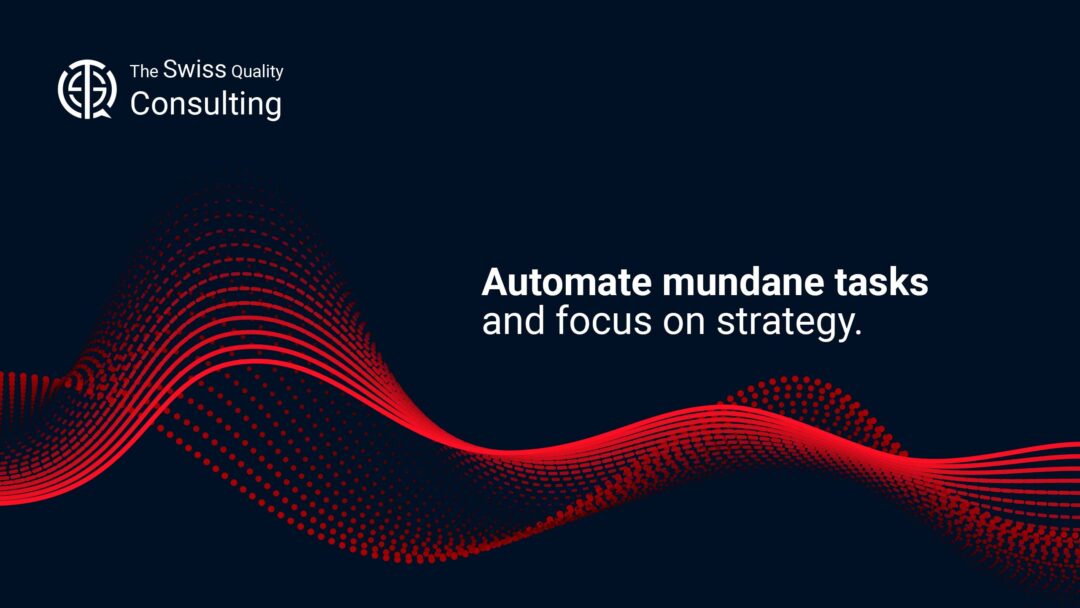Unlocking Efficiency and Success Through the Strategic Integration of Automation in Business Strategy
In today’s rapidly evolving business landscape, staying competitive requires a strategic approach that prioritizes efficiency and innovation. One key to achieving this is the automation of mundane tasks, allowing organizations to redirect their focus toward strategic endeavors. In this article, we will explore the profound impact of automation on business strategy and how it can drive success in the modern world of commerce.
The Importance of Automation
Automation, the hallmark of modern technology, entails the seamless integration of machinery, software, and algorithms to execute mundane, repetitive tasks without human intervention. This transformative force has permeated every industry, revolutionizing processes and redefining productivity standards. From the assembly lines of manufacturing plants to the complex financial transactions of global markets, automation has seamlessly integrated into the fabric of business operations.
Its impact is not confined to the realm of physical production; automation has equally revolutionized the digital landscape, streamlining customer service interactions and optimizing marketing campaigns. Virtual assistants, chatbots, and predictive analytics have taken center stage, providing real-time customer support, analyzing vast amounts of data to identify trends and preferences, and automating repetitive marketing tasks.
The significance of automation in today’s dynamic business world is undeniable. It has elevated efficiency to unprecedented levels, enabling businesses to operate at scale while minimizing human error and resource consumption. By automating repetitive tasks, businesses can reallocate human capital to more strategic, value-adding activities, fostering innovation and driving business growth.
As automation continues to evolve, its impact on the business landscape is set to amplify. We can expect to see even more sophisticated applications that not only automate tasks but also analyze data, learn from patterns, and adapt to changing circumstances. This will further enhance productivity, optimize resource allocation, and empower businesses to make data-driven decisions that fuel sustainable growth.
Automating Mundane Tasks
Many routine tasks, such as data entry, report generation, and email responses, can be time-consuming and error-prone when done manually. Automation tools and software can take over these tasks, ensuring accuracy and freeing up valuable human resources for more strategic activities.
Enhancing Productivity
By automating mundane tasks, organizations can significantly enhance their productivity. Employees can focus on high-value activities that require critical thinking and creativity, which are essential for driving innovation and growth.
The Role of Generative Artificial Intelligence
Generative Artificial Intelligence (AI) is a game-changer when it comes to automation and business strategy. It leverages machine learning algorithms to automate tasks that were once considered too complex for machines to handle.
Advanced Data Analysis
Generative AI can analyze vast amounts of data, extract insights, and make predictions. This capability is invaluable for strategic decision-making, as it allows businesses to identify trends, anticipate customer behavior, and adapt to market changes.
Personalized Customer Experiences
One of the key strategies for success in today’s market is providing personalized customer experiences. Generative AI can analyze customer data to tailor product recommendations, marketing messages, and customer support, enhancing overall satisfaction and loyalty.
Strategic Focus with Automation
When organizations automate mundane tasks and leverage generative AI, they gain a competitive edge by reallocating their resources to strategic initiatives.
Strategic Planning and Execution
With more time and resources at their disposal, business leaders can engage in thorough strategic planning. They can define clear objectives, devise comprehensive strategies, and ensure effective execution, all of which are essential for long-term success.
Market Analysis and Adaptation
Automation tools and generative AI can continuously monitor market conditions and competitor activities. This real-time information empowers businesses to adapt swiftly to changing circumstances and seize new opportunities.
Conclusion
In conclusion, the ability to automate mundane tasks and focus on strategy is a transformative force in the modern business world. Automation not only enhances efficiency and productivity but also frees up valuable human resources for strategic endeavors. Generative AI takes automation to the next level by providing advanced data analysis and personalized customer experiences, driving success in a competitive landscape. Embracing automation is not just a trend; it’s a strategic imperative for businesses aiming to thrive in the 21st century.
#Automation #BusinessStrategy #GenerativeAI #Efficiency #Productivity #StrategicPlanning #MarketAnalysis































